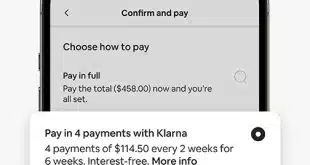Google Inc. on Monday thrust itself into the prepaid processing business with its acquisition of TxVia Inc., a 5-year-old processor based in New York City. The deal, which apparently closed immediately on undisclosed terms, allows Google to take over technology and network connections that could prove useful as it struggles to establish its Google Wallet mobile-payments product, though the precise rationale for the deal remains unknown as Google refuses to comment beyond an announcement posted on its corporate blog.
As a result, industry experts were left to speculate about how Google can leverage TxVia’s assets. “I am stumbling around looking for how this thing ties together,” Tim Sloane, director of the prepaid advisory service at Mercator Advisory Group, Maynard, Mass., tells Digital Transactions News.
The ostensible author of the blog post, Osama Bedier, Google’s vice president of wallet and payments, said in the online announcement that the acquisition would “accelerate innovation towards our full Google Wallet vision. TxVia is a technology pioneer that offers a fast, flexible and highly reliable payments platform—which we believe is one of the best in the world.”
Bedier also cited TxVia’s network links, business partnerships, account-management experience, and executive lineup as assets. TxVia was founded by its chairman and chief executive, Anil Aggarwal, a prepaid-industry veteran who now holds the title of business development for payments at Google, according to his LinkedIn profile. The TxVia Web site lists only the executive team and refers visitors to Google.
While it remains unclear how TxVia’s technology and expertise will support Google Wallet, observers say there are a number of possibilities. The wallet features a Google-branded virtual prepaid card, they point out, that could benefit from the cost efficiencies and comprehensive services available by owning a processing entity. “Google is now buying a payments processor, which has given them the ability to create a platform where they can consolidate the value chain in their wallet,” says Ben Jackson, a senior analyst who works with Sloane at Mercator. “They can bring processing service and connectivity right in their wallet.”
That could boost the product at a time when it faces competition in mobile wallets from a raft of payments heavyweights, including Visa Inc., PayPal Inc., and Isis, a joint venture created by the nation’s biggest mobile carriers.
Google Wallet, which was launched in May and became commercially available in September, has stumbled a number of times in its efforts to penetrate the broad consumer and merchant markets. Earlier this year, Google confronted a pair of vulnerabilities that threatened to compromise the product’s security. And at the same time it announced the TxVia deal, Google lost a second software engineer who had worked on the wallet from its start. Rob von Behren left Google to join mobile-payments startup Square Inc., according to NFC Times. His departure follows that of engineer Jonathan Wall, who left the online search giant a month ago.
At the same time, while Google attracted some big-name partners when it launched Google Wallet–including Citigroup Inc., Sprint, Samsung, First Data Corp., MasterCard Inc., and some major-brand retailers—it has not been able to broaden this base. TxVia’s partnerships, particularly that with prepaid program manager Blackhawk Network, could prove helpful to Google as it seeks to sign up merchants for the wallet, says Sloane. “Blackhawk has lots of merchants, and God knows Google needs merchants,” he says.
Sloane adds that while he expected an acquisition of TxVia, he was surprised by the buyer. “I would have expected this [buyer ] to be PayPal,” he says. “PayPal has far more prepaid volume.” PayPal in February launched a prepaid MasterCard that relies on processing by NetSpend Corp., Austin, Texas. By snapping up TxVia, Sloane notes, Google may have delivered a “shot across the bow of PayPal.”






